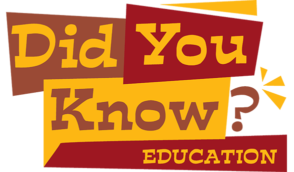You are probably aware of NAIDOC week, a significant event in the Aboriginal and Torres Strait Islanders’ calendar and for all Australians. It is the time to celebrate Aboriginal and Torres Strait Islander cultures and an opportunity to recognise the contributions, both past and present, that Indigenous Australians have made and continue to make to our country and society.
But you may not be aware of how hard Indigenous people needed to work to have their contributions recognised in this way – people like Yorta Yorta man and activist, William Cooper.
Before the 1960s, Australia’s Indigenous people were not Australian citizens, even though they had been born in Australia and their ancestors had lived here for many generations. They were not allowed to vote, were not counted in the census figures, and didn’t have the same rights as non-Indigenous people. They were treated like nobodies in their own country. That’s something that’s very hard for non-Indigenous Australians to imagine. But William Cooper understood it all too well.
William Cooper lived during a time when people were working hard to gain equal rights for Indigenous people. From the 1880s until his death in 1941, he was a leader who worked alongside other activists – people like Indigenous politician Bill Ferguson – to try to make the nation recognise that Indigenous people should have the same rights as everyone else. In particular, people like William Cooper and Bill Ferguson campaigned against the government taking children away from their families in what is now known as the Stolen Generations.
What was it that gave William Cooper the motivation to keep fighting so hard for Indigenous rights?
William grew up in the nineteenth century in New South Wales. He was taught to read and write by missionaries who ran a school for Indigenous children. From the Bible, he learnt that all people are created equal by God, and all are children of God. He also learnt that Jesus taught people to ‘treat other people the way you want them to treat you’. He became a Christian and lived his life in this way.
But as he grew older, William realised that Indigenous people were not being treated in this way. He wrote letters to government leaders protesting against the inequality he saw around him, and formed the Australian Aborigines League in 1935. On one occasion, he gathered over 1800 signatures on a petition intended for the King of England, asking him to improve the rights of Indigenous people. However, the Australian Government did not send the petition to the King, because the Government and its laws did not accept the people who had signed it as Australian citizens.
William was a member of the Australian Workers’ Union and had many friends within that organisation who helped him in his efforts to claim equal rights. In 1938, during Australia Day celebrations of the 150th anniversary of the landing of the First Fleet, William Cooper, Bill Ferguson, and other activists organised the first Day of Mourning to draw attention to the way Indigenous people had been treated for 150 years. After a march through the streets of Sydney, the protesters planned to meet in Sydney Town Hall. However, they were refused access and had to meet in another hall nearby.
Later, William Cooper persuaded some church leaders to recognise an Aboriginal Sunday starting in 1940 on the day before Australia Day. This became National Aboriginal Day, which later moved to July, became an important celebration of Indigenous cultures, and eventually became NAIDOC Week. (NAIDOC originally stood for National Aborigines and Islanders Day Observance Committee, and NAIDOC Week is an annual celebration of the history, culture, and achievements of Aboriginal and Torres Strait Islander peoples.)
So William Cooper was a very important person in the history of Indigenous rights in Australia. But his faith in Jesus and his belief in people treating others as Jesus had taught also made him look far beyond his own people and his own nation.
On 9 November 1938, in an event that became known as Kristallnacht (or ‘night of broken glass’), Nazis in Germany terrorised Jewish people, burning their synagogues and smashing their homes and businesses. Ninety-one Jews were killed and 30,000 were deported to concentration camps. People around the world were shocked.
As someone who had experienced oppression himself, William was shocked too, but he also knew that he needed to protest this injustice. He spoke passionately against it and led a group of people who travelled to the German Consulate in Melbourne so that they could voice their protest. The document they took to the Consulate expressed ‘on behalf of the Aborigines of Australia, a strong protest at the cruel persecution of the Jewish people by the Nazi Government of Germany’. It asked that this persecution be ended.
This public opposition was the only known non-government protest worldwide against this Nazi attack on the Jews at the time. It stands out as the act of a man who truly cared about humanity. In recent years, Jewish communities in both Israel and Australia have honoured William Cooper, whose Christian beliefs led him to take action on behalf of those who were oppressed. In Israel, William’s actions are also commemorated by Yad Vashem, Israel’s official memorial to the Jewish victims of the Nazis during the Holocaust. Yad Vashem created a memorial garden in honour of William Cooper in 2010.
William Cooper lived out Jesus’ teachings about how human beings should treat each other and be treated – whether here in Australia or on the other side of the world. In standing up for others in this way, he left an important legacy.
Written by Sally Smith.
Further Reading:
Barbara Miller, William Cooper: Gentle Warrior, 2012 (see www.barbara-miller-books.com)

